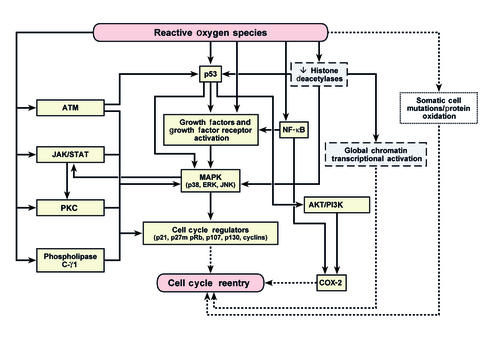Figure 2.
Possible mechanisms for the induction of unscheduled cell cycle reentry in terminally differentiated neurons by oxidative stress. We suggest that oxidative stress, mediated through ROS, could lead to aberrant cell cycle reentry through several different pathways. First, the presence of ROS can result in either cumulative DNA or protein damage that could result in cell cycle reentry. Second, a decrease in histone deacetylase activity can result in chromatin remodeling, leading to transcriptional activation of genes, the products of some of which may lead to cell cycle reentry. Third, many different ROS-activated pathways that have been previously shown to influence the cell cycle in non-neuronal cells could directly or indirectly manipulate a quiescent G0 neuron back into the cell cycle. Several of these pathways also appear to be activated in neurodegenerative disorders. Considerable cross-talk exists between these pathways, as indicated by arrows. Solid arrows represent published pathways, while broken arrows represent hypothesized mechanisms of action.

